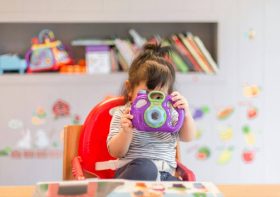Facebook’s new Messenger Kids app could be good for digital literacy

In an era where digital technology is an integral part of daily life, fostering digital literacy from a young age has become increasingly essential. With the emergence of Facebook’s Messenger Kids app, there’s an opportunity to explore its potential benefits in promoting digital literacy among children. This essay delves into the various aspects of the Messenger Kids app and how it could contribute positively to digital literacy.
Understanding Messenger Kids
Messenger Kids is a messaging app developed by Facebook specifically designed for children under 13 years old. It offers a controlled environment where kids can communicate with friends and family members approved by their parents. The app provides features such as text messaging, video calls, and the ability to send photos and videos. Importantly, parents have control over their child’s contact list and can monitor their activity through the Parent Dashboard.
Safe Introduction to Digital Communication
One of the primary benefits of Messenger Kids is that it offers a safe introduction to digital communication. In today’s digitally connected world, children are exposed to various online platforms from a young age. Messenger Kids, with its controlled environment and parental oversight, provides a safer alternative compared to other social media platforms. By allowing children to communicate with approved contacts in a supervised setting, it helps build confidence and familiarity with digital communication tools while minimizing potential risks.
Development of Communication Skills
Effective communication is a fundamental aspect of digital literacy. Messenger Kids encourages children to express themselves through text, voice messages, and video calls. As they engage in conversations with friends and family members, they learn to articulate their thoughts, listen actively, and interpret non-verbal cues. These communication skills are not only essential in the digital realm but also in various aspects of life, including academics, social interactions, and future careers.
Digital Citizenship Education
Digital literacy encompasses more than just technical skills; it also encompasses understanding the responsibilities and ethical considerations associated with digital technology. Messenger Kids presents an opportunity to introduce children to the concept of digital citizenship from an early age. Parents can initiate conversations about online etiquette, privacy, cyberbullying, and the importance of respectful communication. By instilling these values early on, children can develop a strong foundation for responsible digital behavior as they navigate the digital landscape.
Creativity and Self-Expression
The multimedia features of Messenger Kids, such as the ability to send photos, videos, and drawings, encourage creativity and self-expression. Children can share moments from their lives, express their emotions through artwork, and engage in imaginative play with friends. This creative outlet not only fosters self-confidence but also enhances digital literacy by familiarizing children with multimedia formats and digital tools.
Parental Involvement and Guidance
Central to the success of Messenger Kids in promoting digital literacy is the active involvement of parents. The Parent Dashboard allows parents to manage their child’s contacts, monitor their activity, and set controls such as time limits and bedtime restrictions. By actively engaging with their children and discussing their online experiences, parents can provide guidance, address any concerns, and reinforce positive digital habits. This collaborative approach ensures that children develop a healthy relationship with technology under the guidance of responsible adults.
Addressing Concerns
While Messenger Kids offers various benefits for digital literacy, it is not without its concerns. Critics argue about the potential for privacy breaches, exposure to inappropriate content, and the impact of screen time on children’s development. Addressing these concerns requires ongoing monitoring, transparency from the developers, and open communication between parents, educators, and policymakers. By continuously evaluating and refining safety measures, Messenger Kids can strive to provide a secure and enriching environment for children to learn and communicate digitally.
Conclusion
Facebook’s Messenger Kids app has the potential to play a significant role in promoting digital literacy among children. By offering a safe and controlled environment for digital communication, fostering communication skills, educating about digital citizenship, encouraging creativity, and facilitating parental involvement, Messenger Kids addresses key aspects of digital literacy. However, it is essential to remain vigilant about potential risks and concerns and work collaboratively to mitigate them. With responsible use and ongoing support, Messenger Kids can empower the next generation to navigate the digital world confidently and responsibly.




Leave a Reply